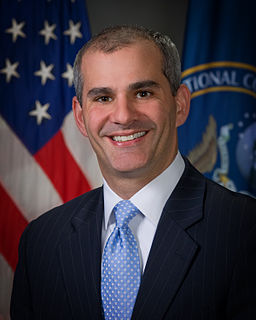A Quote by Niall Ferguson
I refuse to accept that Western civilization is like some hopeless old version of Microsoft DOS, doomed to freeze, then crash. I still cling to the hope that the United States is the Mac to Europe's PC, and that if one part of the West can successfully update and reboot itself, it's America.
Related Quotes
There was this famous clash of civilization thesis from Samuel Huntington, a political theorist. And the idea was that Western civilization is at war with Islam and maybe some of the other civilizations around the world. And I don't agree with that. But I do think there is such a thing as Western civilization. I think it starts with the Greeks and the Romans. Then it goes through the Enlightenment - or the Reformation, the Enlightenment. It goes through the scientific age. And it somewhat defines some of the cultures and mores of Europe and North America and some other countries.
So-called Western Civilization, as practised in half of Europe, some of Asia and a few parts of North America, is better than anything else available. Western civilization not only provides a bit of life, a pinch of liberty and the occasional pursuance of happiness, it's also the only thing that's ever tried to. Our civilization is the first in history to show even the slightest concern for average, undistinguished, none-too-commendable people like us.
Unemployment is higher in Europe than in the United States and primarily concentrated in immigrant minority populations, so people are worried about what's going to happen and if American-style ghettos are emerging in Europe. There are some of the problems there that America sees associated with the lack of economic inclusion - family breakdown, gang behavior, and racial tensions. I get the sense that in Europe they are much more concerned about these issues than in the United States.
The argument now that the spread of pop culture and consumer goods around the world represents the triumph of Western civilization trivializes Western culture. The essence of Western civilization is the Magna Carta, not the Magna Mac. The fact that non-Westerners may bite into the latter has no implications for their accepting the former.







































